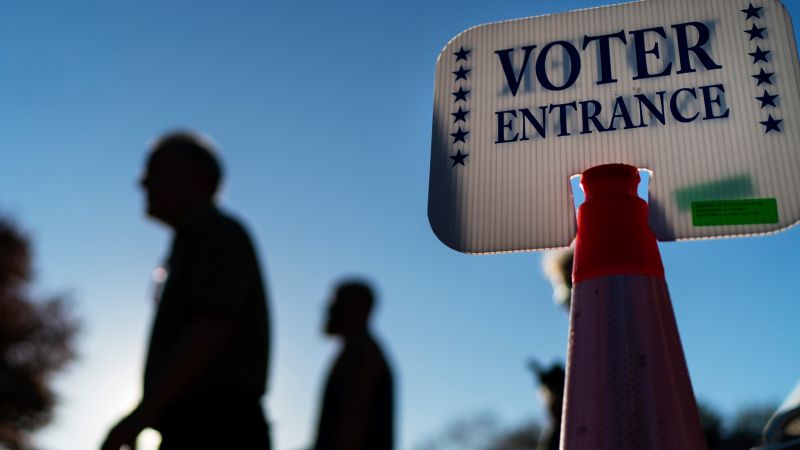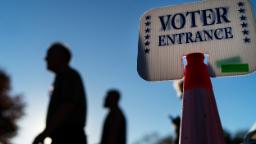New York
CNN Business
—
The first major test of the election denialism era has arrived.
Tuesday’s midterms will be the first significant contest since conspiracy theories and lies about the US election process swallowed one of its two major parties whole. A recent poll found a disturbing 66% of Republicans still believe that President Joe Biden was not legitimately elected.
In truth, the toxicity in the country’s information well has only gotten worse since 2020. The right-wing media apparatus has spent months laying the groundwork for contesting the results of the 2022 midterms if the votes don’t go their way. Major stars such as Tucker Carlson have not only been giving their audiences reason to question the vote, but have effectively been encouraging them to do so. It’s difficult to put into words how dominant election lies are in the information universe in which Republicans almost exclusively get their news. It cannot be overstated.
A version of this article first appeared in the “Reliable Sources” newsletter. Sign up for the daily digest chronicling the evolving media landscape here.
And the 2022 midterms could bring even more challenges. Margaret Sullivan, the media critic and recent author of “Newsroom Confidential,” noted how much more complex the midterms could be to cover, given that in 2020 former President Donald Trump was the only major candidate refusing to accept the reality of the vote. “It was simpler in a way, in that it was one big contest,” she said, adding that this year’s midterms are “a lot more complicated” because there are multiple races that could be contested occurring across the country. “It requires a lot more nuance,” she noted.
Zooming further out, news organizations and social media platforms, where many now get their information, are battling a vexing and toxic environment. In recent days, conspiracy theories about the attack on Paul Pelosi have gone viral, new Twitter owner Elon Musk — who boosted those conspiracies — has upended one of the world’s most powerful communications platforms, Russia is reactivating its disinformation bots, and major candidates in the GOP are priming supporters to deny election results should they lose.
There will, of course, be some election blunders. As Donie O’Sullivan wrote, “There are tens of thousands of different cities, counties, and townships across the 50 states and multiple territories that play a role in administering elections, most of them do things a little differently. There are different machines to cast and count ballots, there are different local election laws and procedures. There is going to be confusion, there are going to be mistakes.”
But small mistakes that are corrected do not translate to mass fraud. Bad-faith media organizations and personalities, however, will exploit such situations to draw sweeping and incorrect conclusions that serve to benefit their political worldview. Combating those lies will not be easy, but as democracy teeters into peril, news organizations must work swiftly and aggressively to shoot them down as they pop up.
There is, however, a realization and general understanding in the news industry that elections can no longer be covered in the ways of the past.
Most news organizations have already started preparing their audiences for the midterms in helpful ways, underscoring that in some tight races it could take days to confidently know the winner. On CNN, political director David Chalian has stressed that in some contests, a candidate could exit Election Day appearing to have a sizable lead, only to see it dissipate as mail-in-votes are counted.
With so much distrust, news organizations are also working to be transparent about the ballot counting process. NBC News posted an article detailing how it collects and reports election data. And the Associated Press, the defacto election source for most news organizations, has published a piece explaining how it declares winners (notably, the AP says it “does not make projections.”)
And on election night, viewers will notice a different type of coverage from news organizations. CBS News, for example, will have a “Democracy Desk” featured prominently in its coverage to help pour cold water on false claims, but also give viewers an understanding of the state of affairs in the country.
“It’s not traditional,” Mary Hager, CBS News’ executive editor of politics, recently told The NYT’s Michael Grynbaum. “But I’m not sure we’ll ever have traditional again.”








More News
Divided Trump campaign weighs joining TikTok, the app he tried to ban
Dozens Are Arrested in Pro-Palestinian Protest at Art Institute of Chicago
After a U.N. official says there is famine in northern Gaza, Israel pushes back.